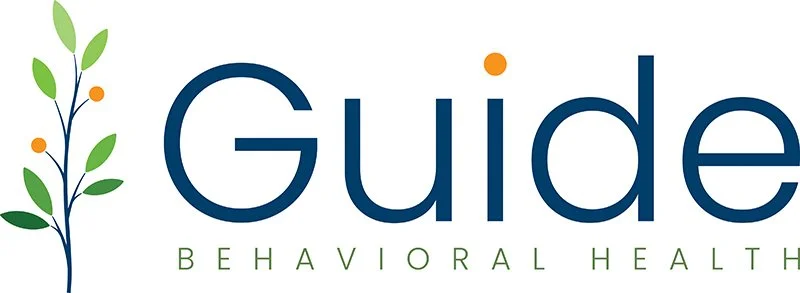Teen Trauma Treatment in Menlo Park
Empowering teens to overcome trauma through compassionate, evidence-based care. Let us guide your family toward healing and resilience.
Or Call 650-507-3888
Helping Teens Heal from Trauma—At Their Own Pace
Trauma can shake a teen’s sense of safety, identity, and connection to the world. Some teens shut down, others lash out—and many carry invisible pain that no one sees. At Guide Behavioral Health, we create space for teens to process that pain and begin healing, one step at a time.
Our trauma-informed outpatient programs are designed specifically for adolescents. We serve families in Menlo Park, Palo Alto, and across San Mateo County with compassionate, evidence-based care that helps teens build emotional regulation, trust, and resilience. Whether your teen is struggling with the effects of a recent event or long-term trauma, we’re here to help them feel safe again.
Signs of Trauma in Teens
Not every teen responds to trauma the same way—and not every symptom looks dramatic. Some signs your teen may be dealing with unresolved trauma include:
Avoiding specific places, people, or situations
Frequent irritability, anger, or emotional shutdown
Difficulty sleeping or frequent nightmares
Physical symptoms like headaches or stomachaches
Trouble concentrating or falling behind in school
Withdrawal from friends, family, or activities
Trauma often co-occurs with other concerns like anxiety, depression, or self-harm. That’s why early intervention and integrated care are so important.
How We Treat Teen Trauma
We don’t believe in rushing the healing process. Instead, we build trust, support self-regulation, and help teens gradually explore and process their experiences using trauma-informed, developmentally appropriate therapy.
Cognitive Behavioral Therapy (CBT)
CBT helps teens challenge distorted beliefs that stem from trauma, build healthy coping mechanisms, and shift out of survival mode. Learn more about our CBT approach.
Dialectical Behavior Therapy (DBT)
For teens dealing with intense emotions, DBT provides tools for emotional regulation, distress tolerance, and interpersonal effectiveness—essential skills for trauma recovery.
Mindfulness-Based Therapy
Mindfulness and grounding practices help teens calm their nervous systems, manage dissociation, and reconnect with their bodies. Explore our Mindfulness Therapy page to learn how it’s used in trauma treatment.
Individual & Group Therapy
One-on-one sessions give teens a safe space to process their trauma with a trusted therapist, while group therapy provides peer support, validation, and connection.
Family Involvement
Healing doesn’t happen in isolation. We work with families to improve communication and create a home environment that supports recovery.
Outpatient Programs That Support Trauma Recovery
Intensive Outpatient Program (IOP)
Our IOP allows teens to attend structured therapy after school, 3–4 days per week. It’s ideal for teens who need consistent support but can still participate in school and home life. Learn more about our IOP program.
Partial Hospitalization Program (PHP)
PHP provides a full-day structured environment for teens needing a higher level of care. It’s best suited for teens with more complex trauma responses or difficulty functioning in day-to-day life. Explore our PHP program.
We also offer flexible after-school therapy interventions for teens who may not require IOP or PHP but still need specialized trauma care.
Serving Menlo Park, Palo Alto, and San Mateo County
Our trauma treatment programs are based in Menlo Park and serve families across:
Palo Alto
San Mateo County
Redwood City
Mountain View
Los Altos
We make high-quality, outpatient mental health treatment accessible to families throughout the Bay Area. Visit our Menlo Park location page to learn more.
Helping Teens Reclaim Their Voice and Sense of Safety
Trauma doesn’t define your teen—and healing is always possible. At Guide Behavioral Health, we help teens process the past, regulate the present, and create a sense of hope for the future. You don’t have to do this alone—we’re here to guide the way.
FAQ: Understanding and Addressing Teen Trauma
-
Trauma in teens can result from various experiences, such as abuse, neglect, accidents, or loss. It impacts their mental health, causing symptoms like anxiety, depression, difficulty concentrating, and emotional withdrawal. Without treatment, trauma can disrupt daily life, relationships, and academic performance.
-
Signs of trauma can include frequent nightmares, avoiding specific people or places, irritability, emotional numbness, and physical symptoms like headaches or stomachaches. If your teen is displaying any of these behaviors, professional support may be needed.
-
Evidence-based therapies, such as Cognitive Behavioral Therapy (CBT) and Dialectical Behavior Therapy (DBT), are highly effective. These approaches help teens process traumatic experiences, regulate emotions, and rebuild a sense of safety and confidence.
-
Trauma treatment focuses on helping teens process specific events and their emotional impact. While anxiety or depression therapy may address general emotional states, trauma therapy directly targets past experiences to facilitate healing and resilience.
-
Our trauma treatment combines evidence-based approaches with holistic methods like mindfulness and yoga. Located in Menlo Park, we provide flexible programs designed to fit into your teen’s schedule, ensuring accessibility for families in Palo Alto, San Mateo County, and surrounding areas.
-
No, trauma can result from a single distressing event (acute trauma) or ongoing exposure to stressors like bullying or family conflict (chronic trauma). Both forms require specialized treatment to address their unique effects.
-
Mindfulness and yoga teach teens techniques for emotional regulation, grounding, and stress relief. These practices complement therapy by promoting overall well-being and resilience.
-
Yes, untreated trauma can increase the risk of developing conditions like anxiety, depression, and self-harm. Early intervention is critical to prevent these secondary challenges.
-
Parents play a vital role in their teen’s recovery. Attending family therapy sessions, creating a supportive home environment, and encouraging open communication are all essential steps. Our team will guide you through this process every step of the way.


